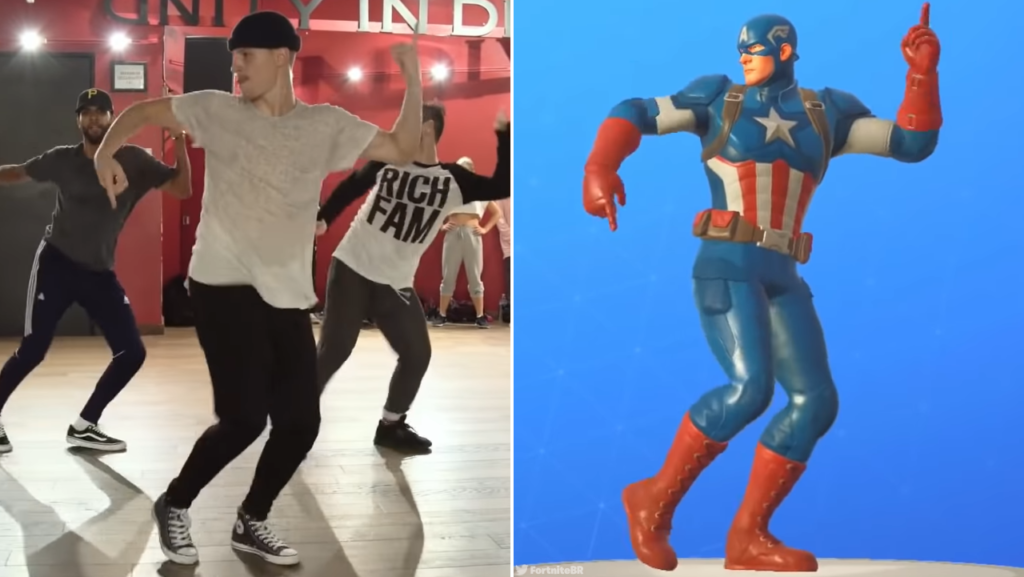It seems like last week’s blog post, the Fresh Prince of Copyright Claims, may have made its way all the way up to the United States Ninth Circuit Court of Appeals. Around 24 hours after publishing our blog, the Court overturned a dismissed lawsuit from choreographer Kyle Hanagami which alleged that Epic Games used some of his copyrighted choreography in a Fortnite emote. In February 2021, Hanagami registered a copyright with the US Copyright Office for a five-minute dance routine (the “Work”) which he originally published on YouTube in November 2017. However, in the interim in August 2020, Epic released an emote called “It’s Complicated” which Hanagami alleged copied 4 counts of movements (the “Steps”) from the Work.
Hanagami originally brought an action against Epic in August 2022, but the United States District Court for the Central District of California dismissed the claim after finding that Hanagami failed to prove that Epic’s emote was substantially similar to the Work. In particular, the Court reasoned that (i) choreographic works are composed of a number of individual poses that when viewed in isolation, are not protectable and (ii) the Steps alone would not be able to achieve copyright registration as they would be viewed as a “short dance routine.”
Last week the Ninth Circuit Court of Appeals ruled that the District Court was wrong in its determination because the District Court (i) ignored the combination of elements that made the emote substantially similar to the Work, such as the footwork, movement of the limbs, tempos, and pathways/transition and (ii) the Steps could satisfy the elements of a choreographic work given the Steps’ complex, fast-paced series of patterns and movements that are performed by highly-trained dancers. The action will now get sent back to the District Court to assess “the appropriate level of copyright for Hanagami’s claim.”
Even though this case is not over yet, the Court of Appeal’s ruling is a win (for now) for both choreographers and content creators. Similar to what we mentioned in our blog last week with Keara Wilson’s “Savage Challenge” routine, it’s encouraging that the Court of Appeal has recognized that if a creator’s dance is complex enough, it should be able to receive copyright protection from unauthorized use. While this ruling would still not help Alfonso Ribeiro (since the Carlton was denied registration for being a simple dance routine in the first place), Hanagami’s suit could be a landmark case (pending the result) for aspiring content creators who receive copyright registration for viral dance routines in the future. We will be following this one closely at GME Law!




